The Corporate Transparency Act (CTA) requires Reporting Companies to report specific identifying information in a Beneficial Ownership Information (BOI) report to the Financial Crime Enforcement Network (FinCEN).1 The BOI report must include each beneficial owner and state their legal name, date of birth, current residential or business address and a unique identifying number.2 The identifying number can be shown via a non-expired passport, driver’s license, or other identification document included in the CTA. The CTA requires all Reporting Companies created before January 1, 2024, to file their BOI report by a deadline of January 1, 2025. The Reporting Companies have a continuing obligation to update their BOI reports. Penalties for non-compliance include (1) up to $500 in fines; or (2) up to two years’ incarceration and fined up to $10,000.00. For more information on the applicability of the CTA as it applies to Associations, please visit Corporate Transparency Act – Manning & Meyers.
Currently, there is a federal lawsuit, Texas Top Shop, Inc. et al. v. Merrick Garland, et al., regarding the constitutionality of the CTA. In this lawsuit, Judge Mazzant granted a preliminary injunction on December 3, 2024, to immediately cease enforcement of the CTA, which includes the enforcement of the Reporting Rule. The preliminary injunction specifically suspends enforcement of (1) the CTA; (2) the enforcement of the Reporting Rule; and (3) the January 1, 2025, compliance deadline is stayed. Therefore, neither may be enforced and Reporting Companies do not need to comply with the BOI report deadline.
At this stage in the lawsuit, the Court has not ruled that the CTA and the Reporting Rule are unconstitutional. This ruling pertains solely to the preliminary injunction—an extraordinary remedy. A preliminary injunction requires Plaintiffs to demonstrate a likelihood of success on the merits of their claim, in addition to other preliminary injunction requirements. The lawsuit looks at the constitutionality of the CTA and the Reporting Rule under the First, Forth, Ninth, and Tenth Amendments. The Court found that Plaintiffs established the CTA likely violates the tenth amendment, and did not look at the other amendments. Specifically, “the Federal Government is not equipped with a federal police power to regulate all aspects of public life…That power belongs to the states alone.”3 Powers not delegated to the federal government in the Constitution are reserved to the States and the people. The Court held that “[t]he CTA is likely unconstitutional as outside of Congress’s power. Because the Reporting Rule implements the CTA, it is likely unconstitutional for the same reasons.”4
It is important to note that this Preliminary Injunction is temporary. Defendants will likely seek a “stay” to effectively lift this ruling. It is recommended to gather the information for the BOI report in case the Preliminary Injunction is lifted. As to whether to file the BOI report or not, that is each Reporting Company’s individual decision; however, currently, reporting of the BOI report to FinCEN is not required.
____________________________________________
1 “Reporting Companies” are defined as a “corporation, limited liability company, or other similar entity that is created by the filing of a document with a secretary of state or a similar office under the law of a Stae or Indian Tribe or formed under the law of a foreign country and registered to do business in the United States by filing of a document with a secretary of state or a similar office under the law of a State or Indian Tribe.” 31 U.S.C. § 5336(a)(11).
2 “Beneficial Owner” is “an individual who, directly or indirectly, through any contract, arrangement, understanding, relationship, or otherwise, exercises substantial control over the entity; or owns or controls not less than 25 percent of the ownership interest of the entity.” Id. at § 5336(a)(3)(A).
3 TX Top Shop, Inc. et al. v. Merrick Garland, et al., No. 4:24-CV-478, 2024 U.S. Dist. LEXIS 218294, at *49 (E.D. Tex. 2024).
4 Id. at *115.



